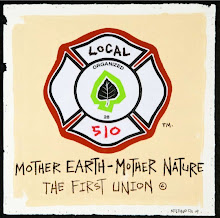 Weekend Edition Sunday, March 29, 2009 ·
Weekend Edition Sunday, March 29, 2009 ·
I believe globalization is forcing our brains to evolve.
Matt Harding's videos of himself dancing around the world have drawn more than 20 million views. "I am in a world of over 6 billion people, all of whom are now inextricably linked together," Matt says.
I've had the privilege to see a lot more of the world than anyone my age could reasonably hope to. A few years ago, on a backpacking trip, I made a video of myself dancing terribly in exotic locations. I put it on my Web site. Some friends started passing it around, and soon millions of people had watched it.
I was offered sponsorship to continue my accidental vocation, and since then I've made two more videos that include 70 countries on all seven continents. A lot of people wanted to dance along with me, so I started inviting them to join in everywhere I went, from Toronto to Tokyo to Timbuktu.
Here's what I can report back: People want to feel connected to each other. They want to be heard and seen, and they're curious to hear and see others from places far away. I share that impulse. It's part of what drives me to travel. But it's constantly at odds with another impulse, which is to reduce and contain my exposure to a world that's way too big for me to comprehend.
My brain was designed to inhabit a fairly small social network of maybe a few dozen other primates — a tribe. Beyond that size, I start to get overwhelmed.
And yet here I am in a world of over 6 billion people, all of whom are now inextricably linked together. I don't need to travel to influence lives on the other side of the globe. All I have to do is buy a cup of coffee or a tank of gas. My tribe has grown into a single, impossibly vast social network, whether I like it or not. The problem, I believe, isn't that the world has changed, it's that my primitive caveman brain hasn't.
I am fantastic at seeing differences. Everybody is. I can quickly pick out those who look or behave differently, and unless I actively override the tendency, I will perceive them as a threat. That instinct may have once been useful for my tribe but when I travel, it's a liability.
Photo courtesy Matt Harding, Harding is working on a book about his travels titled Where the Hell is Matt. He lives in Seattle with his girlfriend and dog.
When I dance with people, I see them smile and laugh and act ridiculous. It makes those differences seem smaller. The world seems simpler, and my caveman brain finds that comforting.
I believe my children will have brains ever so slightly better suited to the vast complexity that surrounds us. They will be more curious, more eager to absorb and to connect.
And I believe when they look into eyes of strangers, what they will see before the differences are the things that are the same.
Independently produced for Weekend Edition Sunday by Jay Allison and Dan Gediman with John Gregory and Viki Merrick.



































